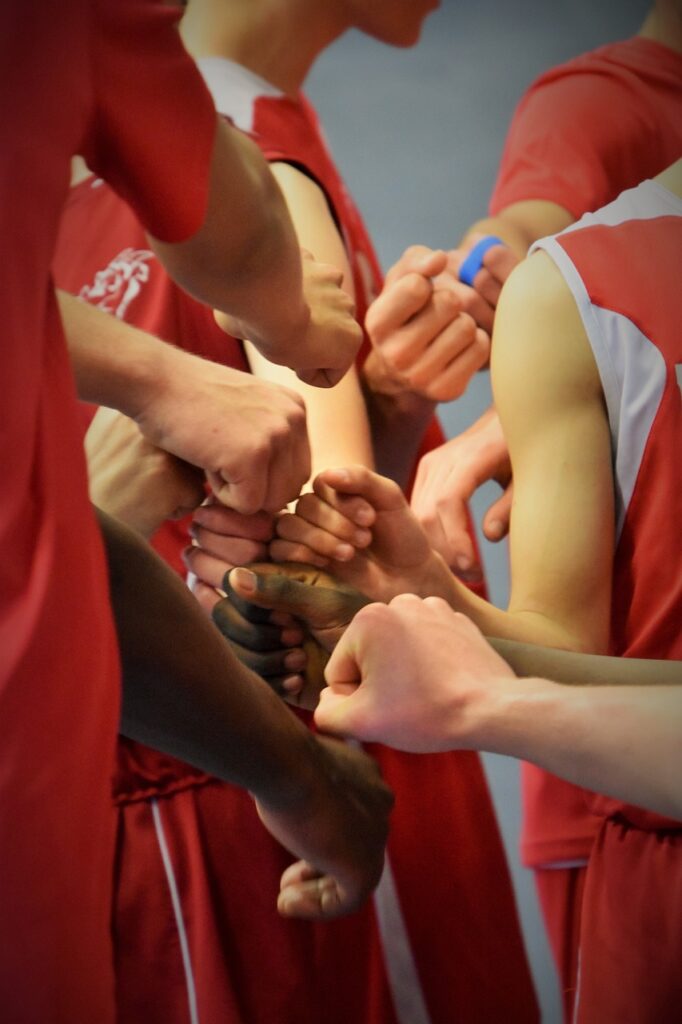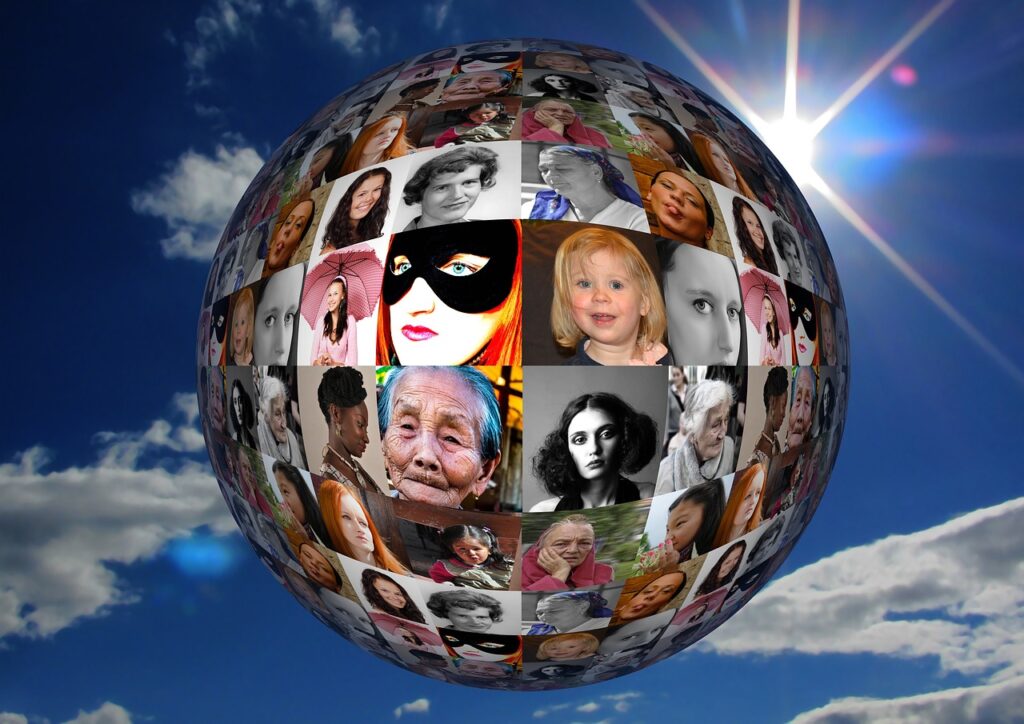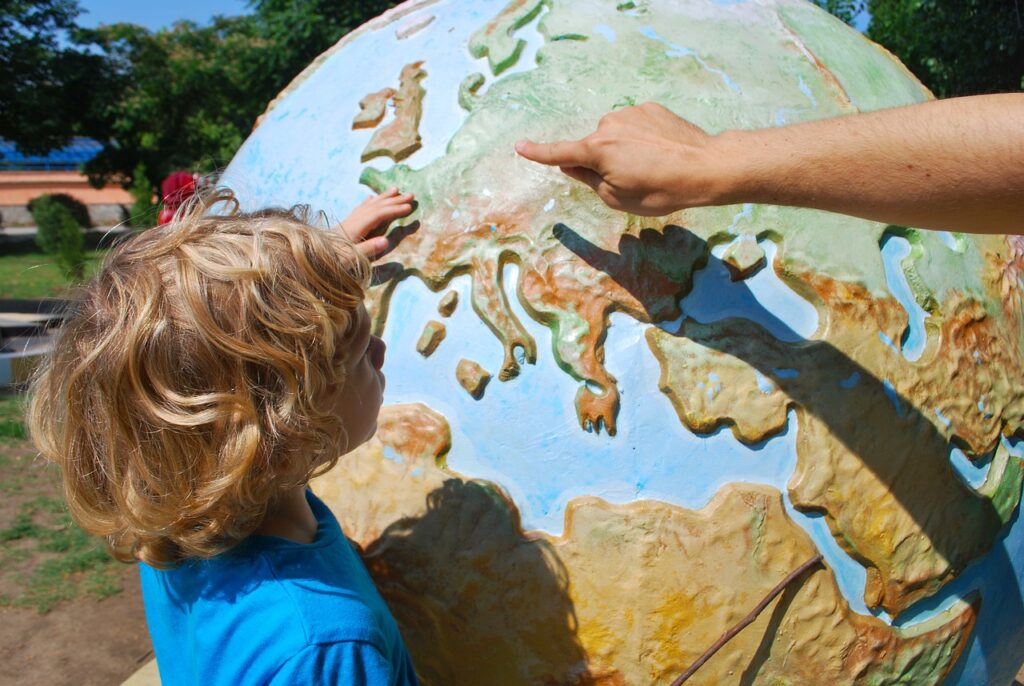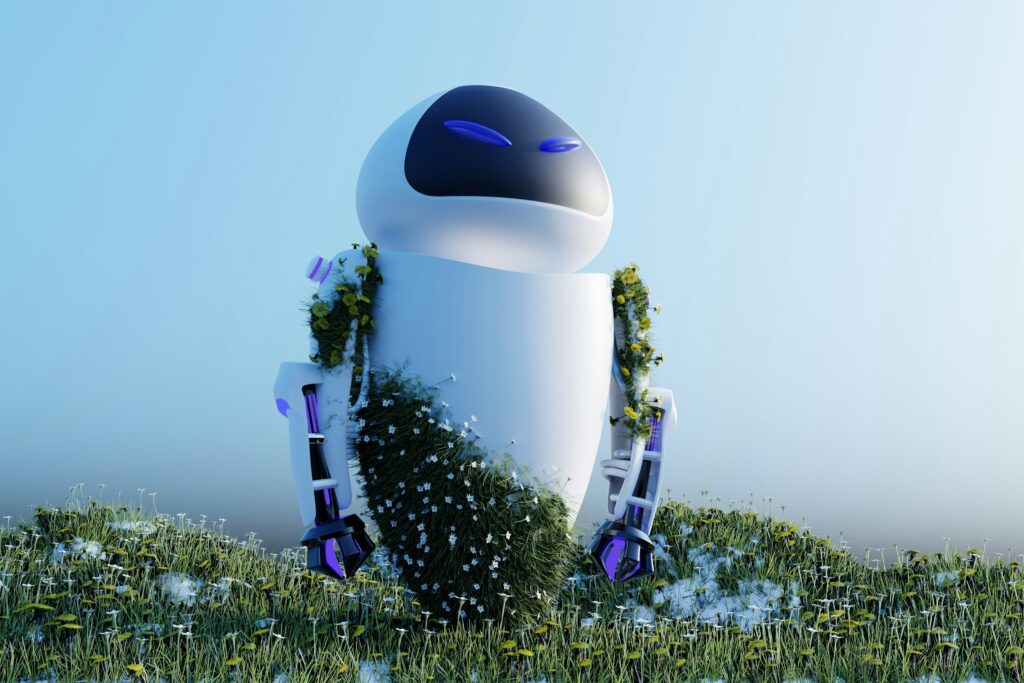Understanding our Society
Picture by A Y
The major societal challenges
“Our society is run by insane people for insane objectives. I think we’re being run by maniacs for maniacal ends and I think I’m liable to be put away as insane for expressing that. That’s what’s insane about it.”
—John Lennon

Languages and Cultures
Languages are more than just a means of communication; they are intricately tied to culture and thought. Understanding a culture means understanding its language, and learning a language offers insights into the culture it comes from. The words and structures we use shape our thinking, as our vocabulary and grammar influence how we express ourselves and view the world.
This deep connection between language and thought creates cognitive biases that are specific to each culture. Our modern global society is the result of millennia of cultural and linguistic evolution. Different languages and cultures developed in isolation for centuries, but today’s globalization might mark a turning point where a shared, collective consciousness can emerge, built on the diversity of our differences.
Perhaps the rise of new technologies, like artificial intelligence, will facilitate this integration of our varied cultural perspectives.
Example: Japanese and French Languages
Consider the differences between Japanese and French as an example. In Japanese, there is no distinct future tense; the present tense is often used to imply the future. Some might argue this reflects the country’s uncertain demographic future. On the other hand, French has a separate future tense, making it easier for speakers to plan and think ahead.
Additionally, Japanese often combines extremes within a single word, such as the word “用捨” (use and discard) or “取捨” (take and discard), while the French word for “choice” (choix) originates from the Latin “causa,” meaning “reason.” This linguistic distinction shapes how people approach decision-making: the French may focus on the reasoning behind choices, while in Japanese, the emphasis may lie in the extremes of the available options.
These differences illustrate how language shapes thought, and when expanded to entire conversations and cultural frameworks, it becomes clear how language influences interactions between people from different backgrounds.
Example: Japanese and French Cultures
While language and culture are closely linked, cultural differences go beyond words. Even stereotypes reveal stark contrasts. In France, for example, strikes are common, even if not everyone knows the specific reasons behind them. In Japan, striking is practically unthinkable due to cultural norms that value conformity and harmony.
Expecting everyone to share our cultural perspectives will inevitably lead to disappointment. Each culture has evolved its own rules and behaviors over centuries. Most of these cultural influences are so deeply ingrained that we act without realizing how much they shape our thinking.
Picture by Note Thanun
Racism
While society has made progress in combatting racism, wars and conflicts still occur. These will never truly end unless we learn to appreciate our differences without resorting to comparison. Comparison is natural—it’s hardwired into our brains—but how we act upon these comparisons is up to us.
Education and experience often guide our decisions, but we always have the ability to choose how we respond. Acknowledging and embracing our differences without fostering hatred is key to ending cycles of conflict.
We cannot erase our distinct cultures, but the time has come for us to act as a united species: humanity. For thousands of years, cultures have evolved in isolation, but now, with the speed of the internet and the advent of AI, we can take a step forward, celebrate our diversity, and work together for the common good.
Picture by Pascalepp


Born and raised to Work
For many, life seems to revolve around work. From an early age, society conditions us to believe that our purpose is to work. This mindset, created by narratives that serve the interests of a few, has become so ingrained that we rarely question it.
Some may be fortunate to find a career they love, but many simply follow societal expectations. Certain jobs are given more prestige, while others—often essential to our daily lives—are undervalued. We’ve grown accustomed to setting alarms, going to work, and making work the focal point of our lives, not just for the money it provides but as a source of purpose.
The reality is that society has been reshaped to function around the concept of work, making it difficult for us to remain idle. Even our free time is often filled with activities linked to money, whether it’s entertainment, consumerism, or social media.
Picture by Jeltevanoostrum
Leisure and Free Time
As society has advanced, so too has our approach to leisure. Thousands of years ago, our ancestors spent nearly all their time meeting basic survival needs—finding food, shelter, and safety. Now, we have the luxury of free time, but this freedom has created a new challenge: how to fill the void.
Our brains are wired to avoid idleness, which is why we feel compelled to “do something” in our spare time. Whether it’s watching TV, playing games, or endlessly scrolling through social media, we constantly seek to occupy our minds. Yet, most of these activities are indirectly connected to money and consumption.
The rise of free time as a concept has also created new disparities. While elites once enjoyed leisure at the expense of others’ labor, today, most people have some degree of free time. However, how we use this time now widens the gap between the powerful and the powerless.
Picture by Averyanovphoto


Marketing, Overproduction, and Consumerism
Marketing has evolved dramatically, especially with the help of AI, to target individuals with extraordinary precision. We are bombarded with advertisements that not only offer products but create desires and cravings for things we may not need.
The cycle of overproduction and consumption floods us with an overwhelming number of options, from the latest phone models to cars and gadgets, even when the world’s resources remain unevenly distributed. We need to recognize the psychological mechanisms behind marketing to regain control over our purchasing decisions.
Picture by JJ Ying
Money
Money, a tool created thousands of years ago, remains central to how we live today. While money itself hasn’t changed much, the ways in which we use it have evolved. From meeting our basic needs to indulging in fleeting luxuries, money drives most of our actions and desires.
We can’t deny the benefits of the industrial revolution, which lifted many out of poverty and famine. Yet, our society of overproduction and overconsumption is far from ideal. As we become more aware of the impact we can have, we have the chance to redefine our relationship with money—not just as citizens of individual nations but as global citizens striving for a more balanced world.
Picture by Ralphphotos


The Paradox of Freedom: Addictions
Are we truly free? The concept of freedom is complex, and our choices are often influenced by external factors. Addictions, whether to substances like alcohol or behaviors like consumerism, challenge our notion of freedom. Products that create dependency are legal, even promoted, because they generate profit, while other substances are criminalized.
This contradiction is so deeply rooted in our society that many don’t even recognize it. We live in a world where addiction is normalized, yet we continue to think of ourselves as free.
Picture by Arcaion
Illusion of Equity
When we are born, we inherit the genes of our parents. Some of us might be “lucky” and inherit genes that result in what society deems a “pretty” face or a height that aligns with society’s standards of attractiveness. We also enter a world with vastly different circumstances—some of us are born into war-torn or famine-stricken countries, while others are born into peaceful environments where survival is less of a daily struggle.
From birth, equity does not exist. We each face different circumstances, and this reality may anger some, but it’s a truth we must accept if we hope to build a better future from a place of honesty.
The only real equity is in how we choose to live our lives, independent of those circumstances. Even then, one could argue that our choices are often shaped by our environment—poor education or limited resources can restrict the ability to choose in the first place.
There is no equity in a world ruled by money, especially when over 90% of it is controlled by just 1% of the population. For the wealthiest individual, purchasing a sandwich is a negligible expense, while for another person, it could cost half of their yearly salary. True equity can only begin when every person has access to basic needs, education, and a fair starting point in life.
Only then will we be able to see the true potential of every individual on this planet.
Picture by Artikhun


Women
I am not a woman, but I will take the risk of speaking on their behalf. As we reflect on the history of our species, we are only just beginning to see changes in how society views women.
Women play the most fundamental role in our evolution—they perpetuate our species. Yet, society still holds onto thousands of years of male-dominated perspectives that have been passed down for generations. When brute force was the most useful skill for survival, women were naturally at a disadvantage. This historical reality created deep-rooted narratives that persist even today.
The place of women in society is one of many contradictions we carry with us. These ancient narratives are so powerful that they still influence the way women are perceived—even by women themselves.
Nevertheless, progress is being made, and we can hope for a more equitable future.
Picture by Geralt
Elderly
In some cultures, the elderly are cared for by institutions, while in others, the responsibility falls on family members. Neither approach is inherently right or wrong, as both have their merits and drawbacks. However, it is unfortunate that we don’t make more use of the wisdom and experience that elderly individuals can offer society. Not in terms of exploiting them for financial gain, but in valuing their life experiences.
With advances in medicine and technology, people are living longer and healthier lives. We also understand that storytelling is one of the most powerful tools for engaging people and passing on knowledge.
Of course, we must be mindful of the elderly’s background before allowing them to share their stories with younger generations. But in an age where so much communication is done through technology, there’s an opportunity to:
- Support an overburdened education system by involving older generations in the learning process.
- Help younger generations develop a sense of community and love for the planet.
- Give elderly individuals a fulfilling role by allowing them to share their knowledge and keep their minds active.
Picture by Christian Bowen


Children
Children represent our future, and they will eventually carry the burden of continuing the cycle of life. They face the most important task ahead, yet in many countries, the education budget is woefully inadequate for the task.
Why? Because they are not yet consumers. This reflects the unfortunate reality of our society’s priorities.
While school isn’t the only place where children learn, it takes up most of their daily time, just as work does for adults. That’s why proper education should be one of our top priorities, alongside health and the well-being of the planet.
But the challenges go beyond school. Modern technology—particularly smartphones—has drastically changed how children interact with the world. We now understand the harmful effects of prolonged screen time, especially on developing brains. Social media, in particular, creates a virtual reality that can be highly addictive.
These technologies do have enormous benefits, but balance is key. Sharing knowledge and best practices on screen use is essential if we want to reduce excessive screen time. And, of course, adults must also set the example. How can we expect children to change when the adults they observe are constantly glued to their phones?
Children between the ages of 8 and 12 spend an average of 2 to 5 hours in front of screens, while those between 13 and 18 spend 4 to 9 hours. We know that this constant visual stimulation creates a state of arousal in the brain, which makes it difficult to engage with “regular” activities, similar to an addiction.
Picture by Mojpe
AI and Our Future
The rise of AI will make it easier to meet our basic needs and provide us with even more leisure time and entertainment. Our current civilization may just be a transitional phase before an AI-enhanced one. If we wish to continue existing as human beings, we must evolve as well. AI will bring solutions we cannot yet imagine, just as previous technological revolutions have. But while technology has advanced, our biology hasn’t changed much—our brains have actually gotten smaller since the agricultural revolution.
Our consciousness is shaped by how we use our brains. So, as AI evolves, it’s essential that we continue to develop and maintain our brains.
By becoming role models in this evolving world, we will be able to harness the power of AI, rather than passively accepting it.
Picture by Aman Pal
